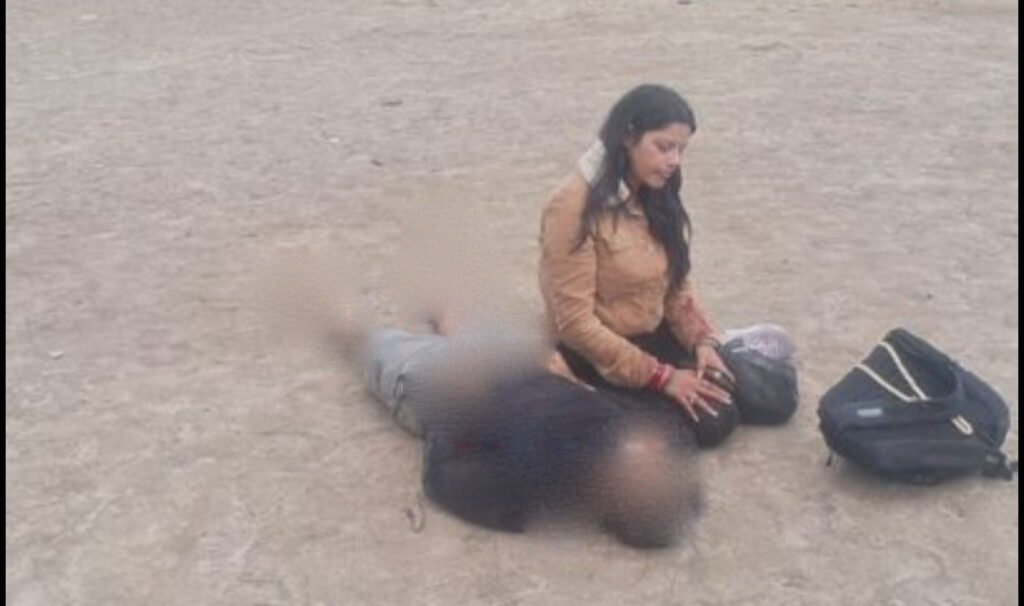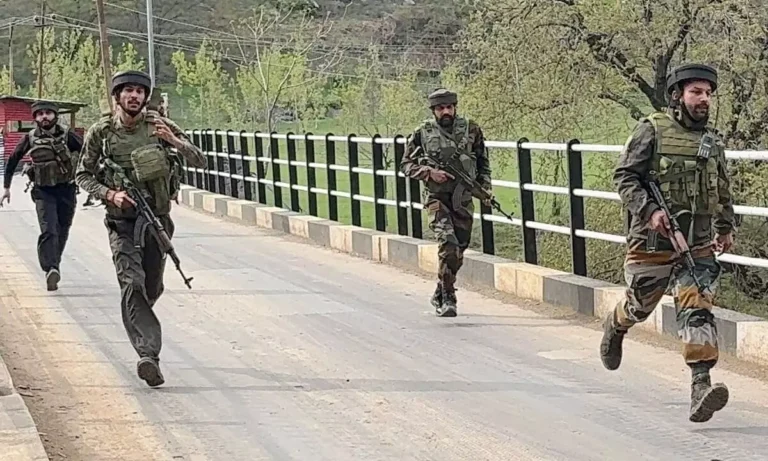
Introduction:
In a shocking turn of events, a terror attack in Pahalgam, Kashmir, has left 28 people dead, including 22 Indian tourists, two local Kashmiris, and two foreign nationals—an Israeli and an Italian. This tragic incident took place on April 22, 2025, in the popular tourist destination of Pahalgam, which has witnessed a surge in visitors in recent years. The attack is considered one of the deadliest in the region in recent years, drawing widespread condemnation from the international community. This article will explore the details of the attack, its aftermath, the responses from local authorities and international leaders, and the broader implications of such violent events on Kashmir’s tourism industry and safety.
Table of Contents
Understanding the Kashmir Terror Attack – Kashmir News
The deadly terror attack unfolded early in the morning when a group of militants opened fire on a group of tourists in the scenic Baisaran Meadow near Pahalgam. The attackers, who emerged from the nearby forest area, indiscriminately opened fire on the unarmed group, killing 28 people and injuring several others. The attackers are believed to have been targeting tourists, a strategy that has been part of previous terror activities in the region.
The group “Kashmir Resistance,” a militant faction operating in the region, claimed responsibility for the attack. According to their statements, the motive was opposition to the Indian government’s policies in Kashmir and growing concerns over settlement policies. The attack raises alarms about the security of tourists in Kashmir, a region already grappling with political unrest and violence.

Prime Minister Modi’s Response to the Pahalgam Terror Attack
In the wake of the tragic terror attack in Pahalgam, Jammu and Kashmir, Prime Minister Narendra Modi condemned the violence and assured that those responsible would be brought to justice. He emphasized the nation’s strong resolve to combat terrorism and reiterated the government’s commitment to ensuring the safety and security of its citizens.
This incident has intensified the focus on counterterrorism efforts in the region, with authorities pledging to enhance security measures and prevent such attacks in the future.
Amit Shah’s Response to the Pahalgam Terror Attack
Union Home Minister Amit Shah strongly condemned the terror attack in Pahalgam, Jammu and Kashmir, which resulted in the deaths of at least 26 individuals, including 22 Indian tourists and two foreign nationals. Describing the incident as a “cowardly attack on unarmed civilians,” Shah vowed that the perpetrators would face the “harshest consequences.” He emphasized India’s unwavering resolve to combat terrorism and ensure the safety of its citizens. Shah promptly traveled to Srinagar to oversee the security situation and coordinate with local authorities.
The attack, which occurred in the scenic Baisaran meadow near Pahalgam, marked a significant escalation in targeting tourists in the region. Authorities have initiated a comprehensive investigation to apprehend those responsible and prevent future incidents.
Omar Abdullah’s Response to the Pahalgam Attack
Jammu and Kashmir Chief Minister Omar Abdullah promptly addressed the nation following the Pahalgam attack. He received Union Home Minister Amit Shah at Srinagar Airport, underscoring the gravity of the situation and the need for coordinated efforts.
Abdullah’s administration has been actively involved in the ongoing investigation and has pledged full cooperation with central agencies to bring the perpetrators to justice. His leadership during this crisis has been pivotal in maintaining public order and ensuring that the victims’ families receive the necessary support.
Hafiz Saeed and The Resistance Front’s Involvement
The Resistance Front (TRF), an offshoot of the Pakistan-based terrorist organization Lashkar-e-Taiba (LeT) founded by Hafiz Saeed, has claimed responsibility for the Pahalgam attack.
TRF was established in 2019 as a proxy for LeT, aiming to present a more indigenous face to the insurgency in Jammu and Kashmir. The group has been involved in several attacks targeting civilians and security forces in the region.
Hafiz Saeed, although currently incarcerated in Pakistan on terror financing charges, continues to exert influence over LeT and its affiliated groups, including TRF. His ideological legacy and strategic directives are believed to guide TRF’s operations, including the recent attack in Pahalgam.
The Indian government has consistently highlighted the role of Pakistan-based terror outfits in destabilizing the region and has called for international action against individuals like Saeed who orchestrate such attacks.
Pahalgam Shooting: A Tragic Attack on Tourists
On April 22, 2025, a devastating terrorist attack occurred in Pahalgam, Jammu and Kashmir, when a group of four gunmen opened fire on a group of tourists at the Baisaran meadow near Pahalgam in the Anantnag district. At least 28 people were killed, including 22 Indian tourists, two local Kashmiris, and two foreign nationals—one Israeli and one Italian. Over three dozen others were injured, many seriously. The attackers emerged from nearby forests and opened indiscriminate fire on the group, resulting in the deadliest civilian attack in the region in recent years. The group “Kashmir Resistance” claimed responsibility for the attack, citing opposition to Indian settlement policies in the region.
In response to the attack, Indian Prime Minister Narendra Modi condemned the violence and assured that those responsible would be brought to justice. Union Home Minister Amit Shah traveled to Srinagar to assess the situation and coordinate the security response. Security forces have launched a manhunt to apprehend the perpetrators.

Newlywed Couple Targeted in Pahalgam Terror Attack
In a harrowing incident during the Pahalgam terror attack on April 22, 2025, a newlywed couple from Uttar Pradesh was among the victims. Eyewitnesses reported that the terrorists selectively targeted male tourists, verifying their religious identity before opening fire. The assailants reportedly asked the men to recite the ‘kalma’ (Islamic declaration of faith) to confirm their religion. Upon identifying the victims as non-Muslims, the terrorists executed them on the spot.
One of the most poignant moments captured during the attack was of the bride, adorned with her red wedding bangles, holding her deceased husband’s head in her lap. This image has since become a symbol of the tragedy, highlighting the personal toll of the violence.
The attack, which resulted in the deaths of at least 28 individuals, including Indian and foreign nationals, has drawn widespread condemnation. Authorities have initiated a manhunt for the perpetrators, and the incident has reignited discussions on the safety of tourists in conflict zones.
The Aftermath of the Kashmir Terror Attack
Following the attack, security forces launched a large-scale operation to capture the perpetrators. Several checkpoints were set up along the routes leading to and from Pahalgam, and the region was placed under heightened security. The Indian Prime Minister, Narendra Modi, expressed his deepest condolences to the victims’ families and condemned the attack, promising swift justice for the perpetrators.
Local authorities also emphasized the importance of maintaining peace in the region and preventing further attacks. The Jammu and Kashmir Chief Minister called for a nationwide mourning period and a comprehensive review of security protocols in tourist areas.
The Pahalgam terror attack on April 22, 2025, which resulted in the deaths of at least 28 tourists, has been claimed by The Resistance Front (TRF), a militant organization active in Jammu and Kashmir.
Who Is The Resistance Front (TRF)?
The Resistance Front (TRF) is a militant group operating in Jammu and Kashmir, formed in 2019 following the revocation of the region’s special status. It is considered an offshoot of Lashkar-e-Taiba (LeT), a Pakistan-based jihadist organization. TRF was established by members from LeT and Hizbul Mujahideen, aiming to present a secular image while continuing insurgent activities.
TRF has been involved in several attacks targeting civilians, including religious minorities, government employees, and security forces. The group maintains an active presence on social media platforms, some of which have been traced back to Pakistan.
Motive Behind the Pahalgam Attack
The Pahalgam attack is believed to be a response to India’s policies in Jammu and Kashmir, particularly the revocation of Article 370 and subsequent demographic changes in the region. TRF and similar groups oppose the settlement of non-local individuals in Kashmir, viewing it as an attempt to alter the region’s demographic balance.
Comparing the 2025 Pahalgam Terror Attack to the 2019 Pulwama Attack
The brutal terror attack in Pahalgam, Kashmir, on April 22, 2025, which claimed the lives of 28 people, has chilling similarities to the Pulwama terror attack of 2019, both in execution and intent. While the two incidents occurred years apart, they represent the ongoing threats faced by India from cross-border terrorism and the shifting tactics of militant groups operating in Jammu and Kashmir.
A Common Thread of Terror
In Pulwama, on February 14, 2019, a suicide bomber from the Pakistan-based group Jaish-e-Mohammed (JeM) targeted a convoy of Central Reserve Police Force (CRPF) personnel, killing 40 soldiers. The attack shocked the nation and led to a sharp escalation in tensions between India and Pakistan, including the Balakot airstrikes that followed.
Similarly, the 2025 Pahalgam attack was carried out by heavily armed militants—claimed by The Resistance Front (TRF), an offshoot of Lashkar-e-Taiba (LeT). This time, the attackers targeted innocent civilians, including Indian and foreign tourists, many of whom were selectively shot after religious identity verification. Both attacks reveal a disturbing pattern of ideologically motivated violence rooted in separatist and extremist agendas.
Escalating Pattern of Terrorism in Kashmir
The Pahalgam attack, much like Pulwama, underscores a persistent strategy by insurgent groups: to destabilize Kashmir by targeting symbols of normalcy—whether that be military convoys or peaceful tourists. The shift from military to soft targets suggests an evolution in militant tactics, aiming to derail efforts at peace and economic revival in the region.
Government Response: Then and Now
In 2019, the Pulwama attack prompted immediate military retaliation through air strikes in Balakot. In 2025, following the Pahalgam massacre, Indian authorities have launched widespread manhunts, heightened border surveillance, and initiated international dialogues condemning the act.
Prime Minister Narendra Modi’s response to both attacks emphasized zero tolerance towards terrorism, while Home Minister Amit Shah’s visit to Kashmir following the Pahalgam incident mirrors the urgency seen post-Pulwama.
Reactions from International Leaders on Kashmir Terror Attack
International responses to the attack were swift. U.S. President Donald Trump condemned the violence, calling it “deeply disturbing” and reaffirming America’s support for India in its fight against terrorism. The UAE also expressed its solidarity with India, with the Ministry of Foreign Affairs issuing a strong condemnation of the attack.
International media outlets covered the story extensively, focusing on the impact of the attack on Kashmir’s tourist industry. The region has been a popular destination for both domestic and international tourists, with the government making significant efforts to boost tourism in the last few years. However, this tragic event casts a shadow on the region’s future as a tourist hotspot.
Trump: Deeply disturbing news out of Kashmir, US supports India
The Implications for Kashmir’s Tourism Industry
Kashmir has long been a major tourist destination, known for its picturesque landscapes and serene environment. However, security concerns have often cast a shadow over its tourism industry. In recent years, the government had been working towards reviving the industry, particularly following the decline in tourism during the COVID-19 pandemic and the ongoing political unrest in the region.
This attack has raised serious questions about the safety of tourists in Kashmir. The government’s efforts to reassure visitors have been tested, and many fear that the attack could lead to a further decline in tourism. The long-term implications for the region’s economy could be severe, with fewer international visitors and a lack of investor confidence in local infrastructure projects.
How Did Security Fail? – Kashmir Tourists Killed
Despite efforts to strengthen security in Jammu and Kashmir, this attack has raised questions about the effectiveness of the region’s counterterrorism strategies. Security forces have faced significant challenges in dealing with insurgency and militant groups, and incidents like these underscore the difficulties in ensuring public safety.
Analysts have pointed out that the rising violence in Kashmir is a result of both internal political issues and external influences. The growing number of militant factions operating in the region makes it difficult for authorities to combat terrorism effectively. There is also a strong argument for improving intelligence and security coordination between local and national agencies to prevent such attacks in the future.
The Role of Militants in Kashmir – Pahalgam Shooting
The militants responsible for the attack are believed to be affiliated with Pakistan-based terror groups that have operated in Kashmir for decades. The region’s geopolitical complexities make it a focal point for extremist groups aiming to undermine Indian authority.
Understanding the motivation behind these attacks is crucial to developing long-term solutions. While the Indian government has attempted to curb militant activities through various means, the ongoing unrest and unresolved political issues in Kashmir continue to fuel radicalization. The rise of new militant factions in the region is a major concern for both local authorities and the international community.
What’s Next for Kashmir?
In the wake of this deadly attack, the future of Kashmir remains uncertain. While the government has vowed to strengthen security and restore peace, the region’s challenges are deeply rooted in its political history. The ongoing conflict between India and Pakistan over Kashmir, as well as the internal struggles for autonomy, continue to fuel the violence.
For now, it remains to be seen how effective the Indian government’s security measures will be in preventing further attacks and restoring the region’s stability. However, the attack in Pahalgam serves as a grim reminder that peace in Kashmir is still fragile and that greater efforts must be made to resolve the region’s long-standing issues.
Conclusion:
The Pahalgam attack in Kashmir is a tragic reminder of the ongoing challenges the region faces with terrorism and security. With 28 innocent lives lost, including both Indian and foreign nationals, the international community has once again been reminded of the risks involved in visiting a conflict-prone area like Kashmir. As the investigation into the attack continues, the future of Kashmir’s tourism industry and its safety measures will be closely watched by both local residents and global observers.
The Pahalgam attack serves as a stark reminder of the persistent threat posed by cross-border terrorism and the importance of unified efforts by local and national leaders to counteract such dangers.




1 thought on “Kashmir Terror Attack: 28 Tourists Killed in Pahalgam – What Happened?”